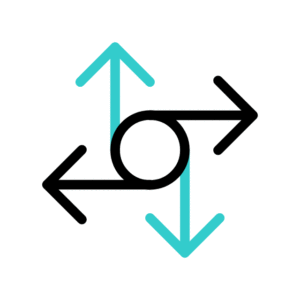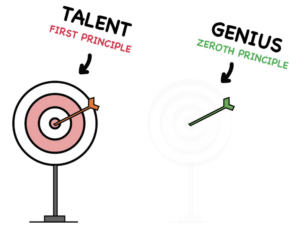Life can be daunting. It’ll throw you problem after problem. Remember this guy?

Let’s not be like him… but… how?
Well, here’s a framework to solve problems more effectively:
Convergent thinking (what is) – finding the singular solution to a given problem.

In PE, when facing a complex financial problem, a firm may use convergent thinking to analyze financial data and identify the best investment opportunities.
Divergent thinking (what could be) – finding multiple solution to a given problem.

In Venture, divergent thinking is essential for identifying innovative startups that have the potential to disrupt the market.
Academic institutions condition students for convergent thinking. Which isn’t inherently bad since you develop a skill set which is (hopefully) relevant to the industry you want to settle into… but prescriptions have side effects.
Because so much stock is put into pounding the convergent paradigm into the curriculum, thinking for yourself is few and far between.
Recent grads begin to act in ways according to what you “should” be doing, rather than doing what you should be doing. This is a sentiment shared through Chamath’s latest talk given to the Wharton Private Equity and Venture Capital club. He talks about a layer of institutional sludge needed to be stripped away from individuals post-education to capitalize on their authentic gifts.
Luckily, counter to this notion is divergent thinking.
Divergent thinking is not (often) taught in classrooms. It’s like the shady back alley “first one’s free” type of thinking… so here’s me giving you your first dose.
You’ve used it before without realizing… since it’s the basis for creativity. It’s because of divergent thinking that you’re able to think from the holistic paradigm and take in account all factors at play.
Convergent and Divergent Thinking is crucial for what Bryan Johnson calls “Zeroth-Principles Thinking”, as coming up with solutions to problems not yet known would be (to say the least) tough to simulate. This is an adjacent to inductive reasoning.

Zeroth Principles – Bryan Johnson
All these frameworks have their applications in corporate governance. Board members may use convergent thinking to analyze financial data and identify areas of inefficiency to improve operational performance. At the same time, divergent thinking is necessary for generating new ideas and exploring opportunities for growth and innovation.
By viewing problems with the lens of these two paradigms, your frame expands drastically. You gain a basis for understanding the different solutions sets to whichever problem sets will be thrown your way.
Sign up to the QYP newsletter already and to become the lean, mean problem solving machine you always knew you were! ![]()










